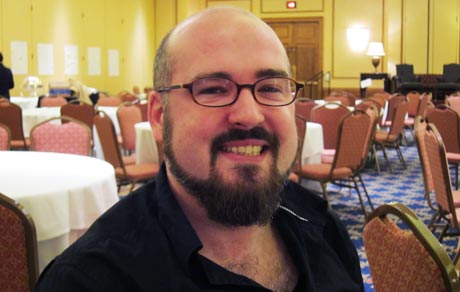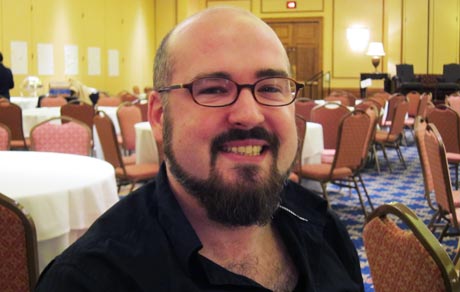I started Denizen because I firmly believe that TCKs deserve a support network. Josh Sandoz, 32, is out there doing exactly that. Working toward licensure as a mental health therapist in Washington state, he is currently Interaction International’s (a TCK group) director of child support services, and serves as a therapist in multiple capacities at a local psychiatric hospital and graduate school in Seattle. As part of Interaction International, Sandoz recently started a resource of mental health experts familiar with the TCK and expat experience.
What’s your answer to “Where are you from?”
It depends where I am, and who is asking me, and what I think they want to know. But usually I’ll re-frame the question and say I was born and raised in Seoul, South Korea.
How has learning the language of “TCK” helped you embrace your own experience?
Words are really powerful. All words, in a way, are metaphors for trying to understand our own experiences.
…I liken it to the myth around the Inuit population, to how they have all these different words for snow. And while I grew up around the snow, I just called it “snow.” I can’t think very deeply about snow; I have very limited vocabulary. And yet I imagine that the Inuit community could think much more deeply about snow.
…When it comes to those big questions of “Who Am I?” “Where do I belong?” “Where do I fit?” “Who are my people?”, having a language to think about those things has been so helpful in being able to reflect and consider not just what I’m doing, but why I’m doing what I’m doing.
You’ve said in the past that you strive to be simultaneously an outsider and an insider. Tell me more about that.
TCKs often find themselves either as a foreigner, as an adopted member of a community, as a mirror to a community or as a hidden immigrant to the community. And sometimes, you can be in multiple situations at once.
[I’ve found that as a TCK, I want to be] recognized as an outsider, as an immigrant, but then also be accepted as one of the community’s own. The tension of being both an outsider and an insider at once I think is the desire. If I’m only seen as an outsider, or if I’m only seen as an insider, then that other part of me feels missed, and feels hidden. And that can be a source of pain.
You married a TCK. How has that affected your relationship?
For us, it’s been really enjoyable, even though we’ve had a variety different experiences growing up. I’m Caucasian, grew up in South Korea, U.S. citizen, lived in the U.S. for a handful of years. My wife is Puerto Rican, grew up between the United States and Costa Rica. We, on the surface level, have pretty extreme cultural differences.
Yet, we were both in highly mobile circumstances growing up, and cross-cultural circumstances. We found that we share a lot more in common than we don’t. Both of us grew up in a way where our norms are set around mobility and valuing multi-cultural experiences. We both desire to continue in that lifestyle, that feels natural for us.
We both are interested in living and working internationally, raising our children in ways that they would also grow up as TCKs. That feels like the cultural norm for us. It would be more radical for us to pick one place and stay there.

